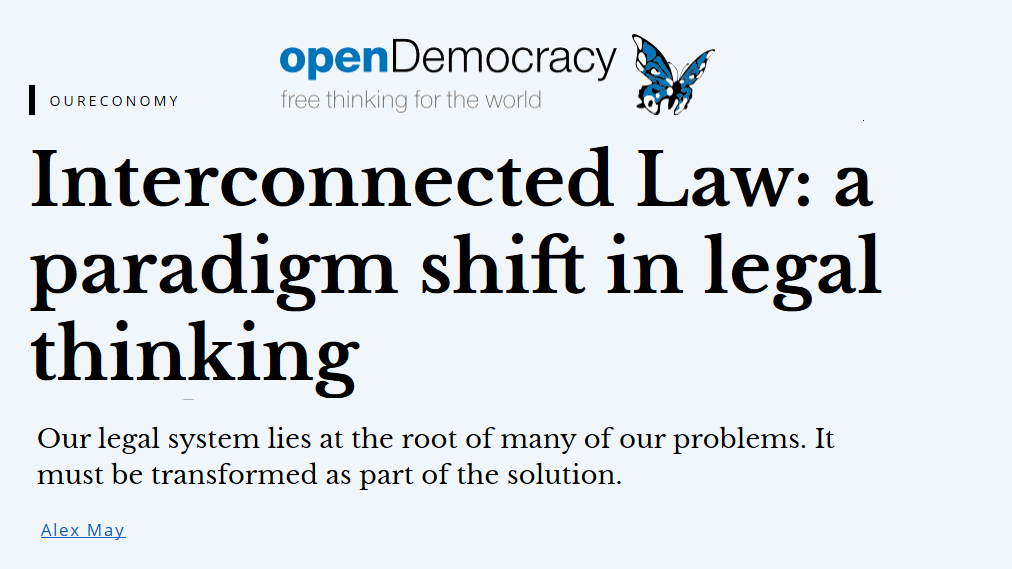This article on openDemocracy sets out the overall idea of Interconnected Law. It is a longer one, but probably the best thing here to read to get the overall picture with some detail. Below are excerpts of the introduction and conclusion.
The full article can be read here.
Introduction
Our world abounds with injustices, and the struggle to challenge and transform these has only become more urgent with the multiple crises facing Western society. But in our efforts to realise better worlds, the role of law has been relatively unexamined. While particular laws are often focused on as rules or processes that need changing, and many social movements invoke arguments based on ‘human’ rights and seek social transformation through law, the bigger picture of law and the legal system has been overlooked.
Despite operating in the background, law is pervasive. It influences almost the totality of human activities: family and interpersonal relationships, employment conditions, accessing housing, the relationship with our environment, and much more. Law is generally seen as somewhat neutral – a technical part of the state or a set of rules and norms controlled by those with political power. But it also a social system which itself needs to be transformed as part of an emancipatory politics. While law is not the magic solution to changing everything, it must be a necessary part of a transformative and political project.
Conclusion
Interconnected Law is a vision for how our legal systems could be, and for how law itself should be transformed as part of addressing injustices in our current society and around the world. The core critique is that law should look not at individuals and individual freedom but at the network of relationships we live in, and work to make these relations ones which nurture and empower instead of which harm, limit or exploit.
The argument is certainly not that law should be the main way we try to change society. It is that law must itself be part of the broader political and social transformation we need, and a part which has been somewhat overlooked so far. I hope that the Interconnected Law approach will be useful to a range of social movements and political tendencies as we seek to realise better worlds.
This is a radical approach to law, and I anticipate that many will respond by saying ‘it’s a nice idea, but that isn’t what law is’. The response to that is: this is what law could be, and radical is what is needed.
